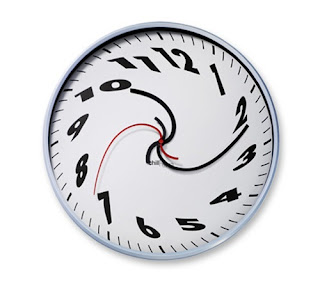
You don’t reach a certain age in this circus we call life without cultivating a few well-chosen pet peeves along the way. Some are inherited while others are imprinted from our first yowling appearance out of the womb and into the world.
My Mom is responsible for my vexation with noisy walkers. When my sister and I were small, we’d screw around the way most kids do and shuffle our feet. This would drive Mommy mental and elicit a barking, “Girls! Pick up your feet!” As I grew up, that command spread into a personal bias not only against shufflers, lumberers and galumphers but the women’s footwear industry. A hex on you clacking high heels! Shut the fuck up thwoking flip-flops! Consequently, I have an extremely light tread that’s temporarily stopped hearts in my fellow human beings and even scared the bejesus out of cats. I also have a helluva time buying shoes.
Under the second nature category is my compulsive punctuality. While some people will be, as the saying goes, “late to their own funeral,” I’ll be ten minutes early to mine. I never mind cooling my flats for a few minutes waiting for an appointed meeting or rendezvous, but may the good Lord help you if you show up a minute late. My time is just as important as your time, and don’t you forget it.
Which is why I’m increasingly ticked (tocked) off by the vague phrases that have become the lingua franca of designating time or, more importantly in my industry, deadlines.
The most passive-aggressive is the acronym ASAP. As someone who prides themselves on not just meeting but beating deadlines what, exactly, does “as soon as possible” mean? Metaphysically, any thing is possible at any time. Using ASAP is just a convenient way to cover your ass. You don’t come off sounding like a whip cracker if you only imply a need for speed, but can say to your direct report “I told them I needed it ASAP” if it doesn’t magically materialize within a never allotted time frame.
While it hasn’t reached the ubiquity of ASAP, EOD is another murky qualifier that’s turning up in my e-mails more and more. If I worked as a trader on the New York Stock Exchange, end of day would be 4pm. If I were a soldier in basic training, end of day would be 6pm. If I followed the sun, end of day would be whenever Old Sol sets. Of course, there’s the “end of days” or “Armageddon,” which would be the end of day and night for good and all. The point is, my end of day may not be your end of day. In fact, given how some days end, I wish they never began.
Although I found it easy as a kid to walk like a starving hunter, it was, ironically, more difficult to master the reading of a clock face, so my Mom bought me a Fisher-Price “Tick Tock Teaching Clock” to help the process along. I still have it as my most cherished childhood toy. For those who use flimsy acronyms instead of solid numbers to lay down a deadline, feel free to borrow it. Anytime.


